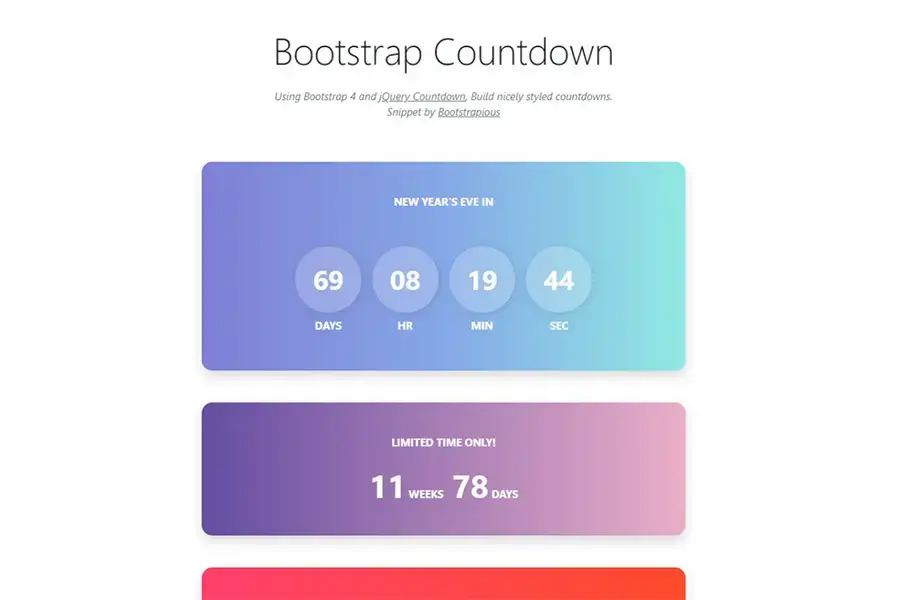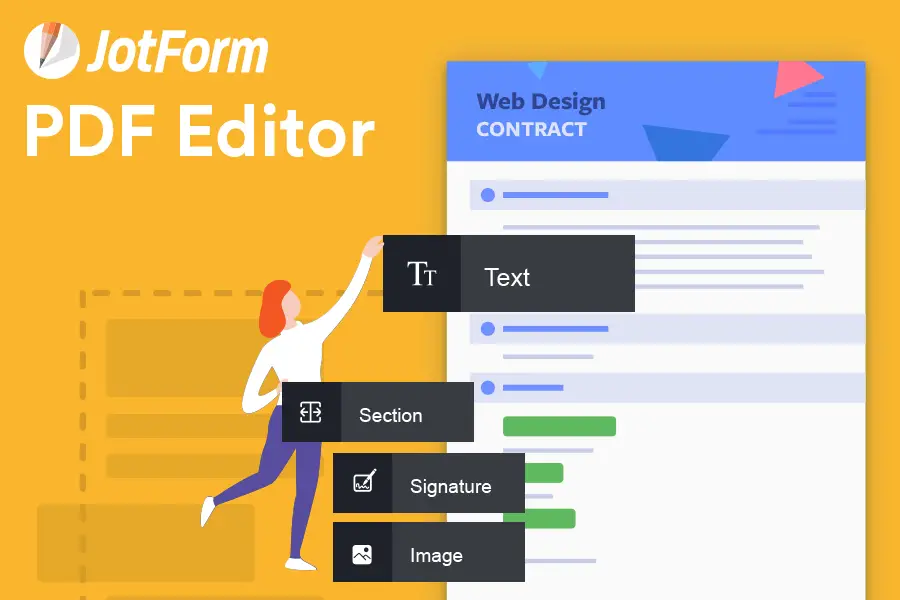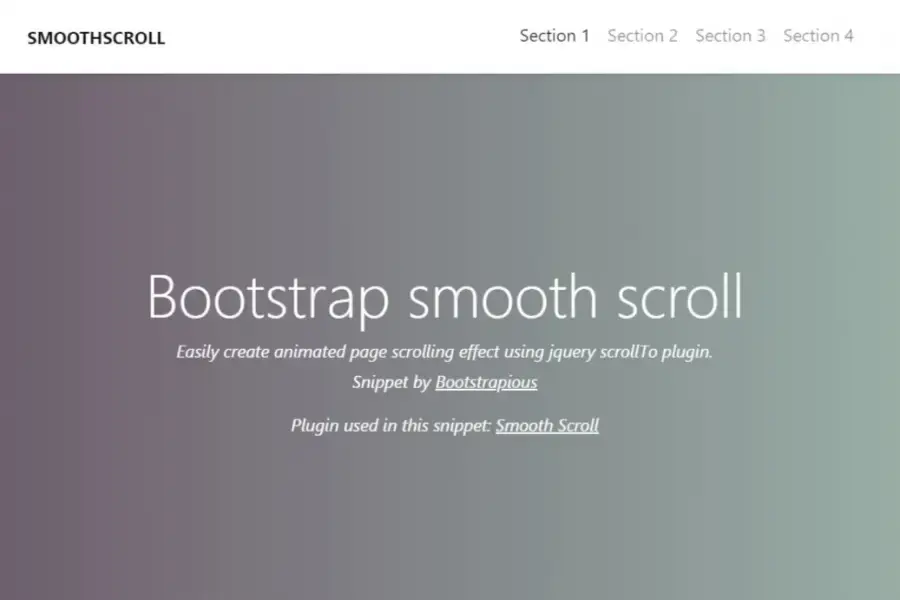5 Cutting-Edge Real-Time WYSIWYG HTML Code Editors for Designers and Bloggers
Let’s face it—coding and creating a website can be a tedious and lengthy process, especially if you are new to a programming language such as HTML or JavaScript. Whether you are a blogger or a designer who doesn’t know about coding, building a website can be a daunting task. Keeping an eye on HTML coding, syntax highlighting, and maintaining a proper structure are just a few of the many challenges of building a website from scratch. Fortunately, WYSIWYG HTML editors can help you code without any worries. A WYSIWYG HTML code editor can not only help you to create a website without extensive knowledge of coding but also allow you to optimize the content for search engines.
Let’s find out what a WYSIWYG editor is.
What Is a WYSIWYG Editor?
A WYSIWYG, short for What You See is What You Get, HTML code editor is a tool that allows developers to see what the end result will look like while the document or interface is being created. Even if you don’t know the principles of HTML coding, you can easily add text as well as images and adjust the structure of your web page with a WYSIWYG editor.
Using this tool, it is faster and easier to create web pages. Furthermore, you can make changes to a page layout by simply dragging the objects to their new positions.
Now that you know what a WYSIWYG editor is, you might be wondering: Which is the best WYSIWYG editor for designers and bloggers? Let's find out the best WYSIWYG editors for designers and bloggers.
5 Best WYSIWYG HTML Code Editors for Designers and Bloggers
While you can find a plethora of WYSIWYG HTML editors, choosing the right one is not as easy as it sounds. Beyond that, you have to take into consideration a number of factors before choosing a WYSIWYG HTML code editor.
Following is a list of the five best WYSIWYG editors for designers and bloggers, with their popular features and website links.
1. Froala
-1.jpg)
Widely regarded as one of the best WYSIWYG editors, Froala Editor is a lightweight WYSIWYG HTML editor written in JavaScript that enables rich-text editing capabilities for your applications. Froala is not only easy to use but also offers cross-platform compatibility, which means you can use it on smartphones and tablets.
The WYSIWYG editor makes it easy to connect different media elements within your web portal and display them easily on the web’s front end. Furthermore, Froala Editor also allows you to easily customize your whole web design workflow and even include custom unit testing to test your web app’s stability.
With these features, Froala enables you to build a beautiful website without any hassle. Here are some of the main features of Froala Editor.
-
Powerful and user-friendly: Froala is without a doubt one of the most powerful and user-friendly WYSIWYG HTML editors on the market. Froala Editor is not only well-structured and practically bulletproof in terms of security but is also lightweight.
-
Optimized for mobile: In addition to being one of the most powerful WYSIWYG editors, Froala can also be accessed using smartphones and tablet devices. Furthermore, the editor supports both iOS and Android devices, along with image and video resize for smartphones and a customizable toolbar for any screen size.
-
Easy to integrate: Froala Editor can be easily integrated into any kind of project in no time. Furthermore, it requires only basic JavaScript as well as HTML coding knowledge.
-
Customization: One of the major benefits of Froala is the fact that it offers a wide array of customization options. Furthermore, you can use the API to change the default behavior or edit the source code.
2. TinyMCE editor
-1.jpg)
Whether you want to create a blogging site or a website for your business, TinyMCE enables anyone with even rudimentary tech knowledge to create a simple but attractive web portal in no time.
Furthermore, TinyMCE comes with over fifty plugins that are easy to configure, and it also has a hundred-plus customization options. Here are some of the main features of TinyMCE.
-
Advanced media embedding: While all the major WYSIWYG HTML editors come with built-in media embeds so that the user can add things like pictures, videos, infographics, and others, they don’t allow users to preview the embeds. TinyMCE’s advanced media embedding allows you to preview embeds from over 1,800 rich media sources, including Facebook, YouTube, and Spotify.
-
Spell-checker: TinyMCE’s spell checker underlines misspelled words for users as they write, which cuts down typos before publishing. While basic spell checkers are common in WYSIWYG editors, TinyMCE’s spell checker is unique because it is available in thirteen languages and lets you build a custom dictionary of words that’s globally accessible across your whole organization.
-
Easy to install: Another major benefit of TinyMCE is the fact that it is easy to install when compared to other WYSIWYG HTML editors.
3. CoffeeCup HTML editor
-1.jpg)
CoffeeCup HTML editor is an often-overlooked WYSIWYG editor that gives you more value for your money than any other WYSIWYG editor on the market today. It offers a wide array of advanced features like code completion, website components that update instantly across all pages, and live previews, among many others. Here are some of the remarkable features of the CoffeeCup HTML editor.
-
Split-screen preview: CoffeeCup HTML editor’s split-screen preview features allow you to view your webpage in a browser right from the code editor.
-
Templates: The WYSIWYG HTML editor also gives you full access to a wide range of templates that you can easily import into your editor with the click of a button.
-
Advanced features: CoffeeCup HTML editor offers a wide range of advanced features such as HTML check, thesaurus, front designer, easy-to-add HTML effects, and many more.
4. CKEditor
-1.jpg)
Formerly known as FCKeditor, CKEditor is a WYSIWYG rich-text editor that enables writing content directly inside online applications or web pages. Furthermore, its core is written in JavaScript, and it was developed by CKSource. This WYSIWYG editor is available under open-source and commercial licenses.
In addition, it is easy to create and preview document versions via this editor. You can instantly see the changes made in the WYSIWYG editor in preview mode. With the help of CKEditor, you can also quickly generate PDF and Word files from your edited content.
Because CKEditor uses ES6, it does not work with legacy browsers that don’t support ECMAScript. Needless to say, this could affect users in restrictive corporate environments. Here are some of the main features of CKEditor.
-
Customizable: One of the major benefits of CKEditor is the fact that it is customizable. It allows you to customize each and every aspect of its interface, from the toolbar to the skin, the dialogs, the context menu, data parsing, styling, and more.
-
Plugin-based: The editor structure is plugin-based, including many of its core features. Furthermore, plugins are located in separate files, making them easy to organize as well as maintain.
-
Rich JavaScript API: CKEditor is an advanced editing platform offering robust JavaScript API. Beyond that, it is possible to interact with this WYSIWYG editor at runtime, creating customized and innovative features and content manipulation.
5. Quill
-1.jpg)
Created by Jason Chen and Byron Milligan, Quill is a robust WYSIWYG editor that is built for the modern web. It is one of the best free WYSIWYG HTML code editors that supports all modern browsers on desktops, smartphones, and tablets.
Furthermore, the Quill editor lets users add custom behavior or modifications on top of its already available features. Here are some of the main features of Quill.
-
Cross-browser compatibility: Quill works on all the major browsers, including Google Chrome, Firefox, Safari, and others.
-
Easy to use: Without a doubt, a crucial benefit of Quill is the fact that it is easy to use. This WYSIWYG HTML code editor ships with sane defaults, which you can immediately use with just a few lines of JavaScript:
var quill = new Quill('#editor', { modules: { toolbar: true }, theme: 'snow'});
-
Custom content and formatting: There’s no limit to the content and format this WYSIWYG editor can support. Furthermore, you can use it to add embedded slide decks, interactive checklists, and also 3-D models.
With WYSIWYG editors that are listed above, you can effortlessly create a site from scratch and modify the code to add more functionality. No matter which WYSIWYG editor you choose out of the above-mentioned editors, you can easily create a high-quality website in no time using it.
Final Takeaway
Whether you are a blogger and want to create your blogging site or a web designer who wants to build a site without spending too much time on coding, choosing the right WYSIWYG HTML code editor is vital.
The WYSIWYG editors listed above are the best of the best, so no matter which one you choose, you are likely to love the experience. Furthermore, the best WYSIWYG editors are lightweight, offer tons of customization options, and are quick to load.
As such, if you are searching for a full-featured WYSIWYG HTML editor that is easy to set up and offers the most advanced features, then look no further than Froala. Whether you want to create a web portal for your own business or are looking to offer your services to other companies and freelancers, this web-based editor enables anyone with even rudimentary tech knowledge to create a beautiful website quickly and effortlessly.



